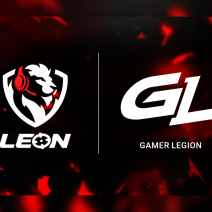TableTrac Signs Contract with Wild Rose to Install CasinoTrac Management System at Its Three Iowa Properties
Table Trac, Inc. announced that Wild Rose Entertainment, L.L.L.P, a successful gaming operator in Iowa, has elected to replace and upgrade its legacy casino management system with Table Trac, Inc.’s CasinoTrac.
Wild Rose owns and operates three state-regulated casino properties located in Clinton, Emmetsburg and Jefferson, Iowa. The company’s three casinos feature more than 1,500 slot machines as well as table games, off-track betting and simulcasting (Clinton), live entertainment, hotels, eight restaurants including buffets and an RV park in Emmetsburg. In addition, all three properties are in the process of launching sportsbooks for betting on a variety of college and professional sports.
Chad Hoehne, CEO of Table Trac, Inc., said, “We have been working hard to raise awareness of our full-featured CMS product, along with the service and the value we give to our clients. We look forward to fulfilling that promise again at the Wild Rose casinos.”
Wild Rose has created a niche in bringing full-service casino entertainment to rural areas with destination appeal. Since opening its first casino in June 2006, Wild Rose has welcomed more than 15.3 million people to its three properties with visitors from all 50 states and 27 countries. As a company, Wild Rose casino revenues have generated approximately $45 million for community projects and organizations in Greene, Palo Alto and Clinton counties.
“No one likes to go through system changes, but when you upgrade and update with a system like CasinoTrac, you can make a true difference to your business,” said Tom Timmons, president and COO of Wild Rose. “This CMS is tailored to our size, and CasinoTrac allows us to streamline and improve our player card system for our customers so they can use one card at all of our properties and log play time, points and rewards accordingly.”
Timmons added that Table Trac’s performance record in terms of maintenance, response times and service was a defining factor in Wild Rose choosing CasinoTrac.
About Table Trac, Inc.
Founded in 1995, Table Trac, Inc. designs, develops and sells casino management systems. CasinoTrac is currently operating in casinos across 13 countries including the United States, Central and South America, the Caribbean, and Australia. More information is available at http://www.tabletrac.com/.
Forward Looking Statements
This press release contains forward-looking statements that involve numerous risks and uncertainties. Actual results, performance or achievements could differ materially from those anticipated in such forward-looking statements as a result of certain factors, including those set forth in the Company’s filings with the Securities and Exchange Commission.
Source: Table Trac, Inc.





